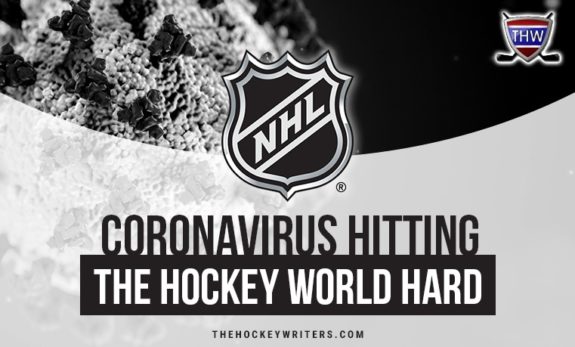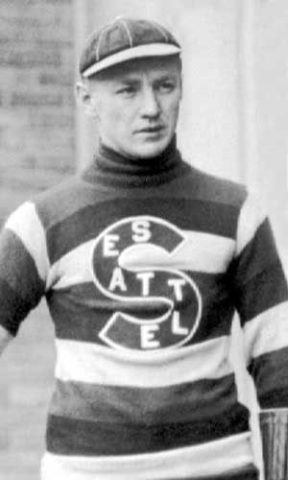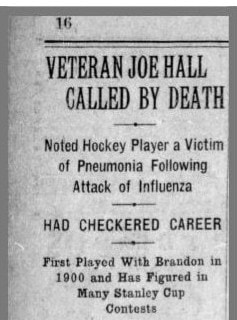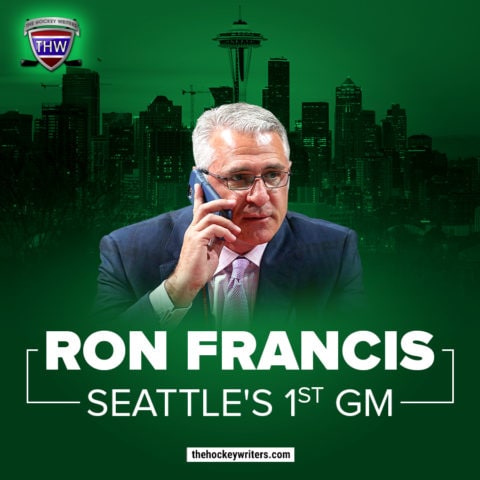A quick internet search of “Historic Recurrence” gives inquiring minds a shovelful of philosophical theories from those old-timey Greeks such as Polybius and Dionysius. And some great thinkers later on — Machiavelli and Nietzsche, among many — picked up on those same vibes leading to the perception that world events years apart can be strikingly similar.
Related: Old School NHL Jerseys – Gone But Not Forgotten
In the sports world, this repeating of history was quite apparent not long before the COVID-19 pandemic health crisis shut down all sporting activity. The Houston (insert a more negative nickname here) Astros were found, in 2019, to be cheaters. Most serious baseball fans are reminded often that, 100 years earlier, the Chicago (Black Sox) were conspiring in skulduggery much like the Astros of 2017, placing a permanent stain on the grandeur of the game.

There are other examples that don’t pop out at you. For instance, the Boston Red Sox won the World Series in 1918 and 2018, but that fact gets kind of lost in the blitz of four championships the Beantowners have piled up since 2004. For that matter, do many people realize that the Old Towne team delivered a handful of championships at the start of both centuries — 1903, 1912, 1915, 1916, 1918 and 2004, 2007, 2013, 2018?
Hockey Is Not Exempt From This Repeating Cycle
Citizens today may think that wearing a mask during this widespread flu emergency is something new. But, no. Not wearing a mask during the Spanish flu pandemic (which lasted from 1918 to December 1920) was against the law in some U.S. locales.
The 1918 flu was first observed in Europe, the United States and parts of Asia during World War I before swiftly spreading around the world. Citizens were ordered to wear masks, schools, theaters and businesses were shuttered and bodies piled up in makeshift morgues before the virus ended its deadly global march.
From History.com (Oct. 12, 2010)
What’s more, the Stanley Cup was not awarded for the first time in 1919 because of the severe toll it took on the participating teams. Now, 101 years later, there’s a chance that the cherished prize won’t be given out again because of a health crisis.
Related: Fuzzy History of NHL Playoff Beards
A Seattle franchise — the Metropolitans of the Pacific Coast Hockey Association — was in the 1919 Stanley Cup Final against the Montreal Canadiens when the series was halted due to the flu. A.K.A. the Mets, Seattle had snagged the Stanley Cup in 1917, the first American team to do so.

But the Mets were denied a second Cup, even though they held one-game series leads twice against Les Habitants in 1919. The final count in games between the champions of the PCHA and the fledgling NHL was 2-2-1.
On March 27, 2020, WBUR did a Q&A with Kevin Ticen about that morsel of hockey history. While researching for a book he wrote on the 1917 championship series, he stumbled across the story of the 1919 Stanley Cup Final.
(At first) it was just a weird anomaly. It was kind of a cute little side story. (Recently), all of a sudden, it’s relevant. As this coronavirus started to spread, I definitely was looking at it thinking, ‘This is eerily similar.’
Tragedy Puts an End to 1919 Cup Final
Here’s how “Hockey Chronicle,” a history of the sport, describes the cancellation and what led to it:
“Everyone in the rink was aware of the worldwide flu epidemic and the fact that there were some objections to such large public gatherings. No less ominous was the behavior of some players who appeared more exhausted than usual.
“… Well before the fifth game had ended, Canadiens star Joe Hall was rushed to the hospital, suffering from the dreaded influenza. In addition, Billy Couture, Jack McDonald, Newsy Lalonde, and Louis Berlinquette also were bedridden, along with Montreal manager George Kennedy. The latter suggested that the series be continued with Victoria players substituting for the ailing Canadiens, but the Metropolitans refused the offer. Other suggestions for a resumption of the series were refused.” (from ‘The Hockey Chronicle, Year-by-Year History of the National Hockey League,’ Publications International. Ltd., 2003).
Georges Vezina, whose name is on the trophy annually given to the NHL’s top goaltender, was one of the Montreal players who did not get sick during the pandemic.
Newspaper reporters had a breezy style, describing the series. About Seattle’s 7-2 Game 3 victory, Leo H. Lassen of the Seattle Star wrote:
“The Canadiens made a desperate effort to tie the score in the final period with the home squad four goals to the merry. The Easterners managed to slip in two counters at the start of the period, but the Mets took the offensive again in the last half of the session and put the home team in clover by ringing up three more goals.” (from ‘Mets Trounce Les Canadiens In Third Mix,’ Seattle Star, March 25, 1919).
Related: Top 12 Fastest Skaters Ever in the NHL
The Montreal Gazette reported the end of the series before a deciding sixth game could be played: “Definite and final announcement was made by Arena management at 2:30 p.m. that there will be no more world series games this year. At noon today, workmen started tearing up the Arena ice floor preparatory to converting the building into a roller skating rink.” (from ‘Seven of the Canadiens And Owner George Kennedy Stricken With Flu,’ Montreal Gazette, April 2, 1919).
Sadly, Hall died April 5 at age 37.
Hall Played Hockey
For ‘All There Was in It’
Hall’s death and hockey career were chronicled in The Gazette:
“Joe Hall, a defence man of the Canadiens Hockey Club, died here Saturday afternoon at three o’clock in the Columbus sanitarium of pneumonia, following a severe attack of influenza. His body will be shipped to Vancouver and then to Brandon, Man., where he is survived by a widow and three children.

“… Hall played the game for all there was in it, and although he checked hard and close, he was never known to take a mean advantage of a weaker opponent.” (from Veteran Joe Hall Called By Death,’ Montreal Gazette, April 7, 1919.)
Hall won three Stanley Cups, with the Kenora Thistles in 1907 and the Quebec Bulldogs in 1912 and ’13. He was inducted into the Hockey Hall of Fame in 1961, in the same class with Montreal Canadiens star Maurice “Rocket” Richard.
Top-level Hockey Makes a Big Comeback in Seattle
The Seattle Metropolitans folded in 1924. The Canadiens went on to become the most illustrious of hockey clubs, winning 24 Stanley Cups.
And in keeping with the theme of resonating historic similitude about 100 years apart, hockey is back in vogue in the U.S.’s biggest northwestern city. Seattle is the NHL’s newest franchise preparing to start on the ice for the 2021-22 season.
Led by general manager Ron Francis, Seattle will choose players for its roster in the June 2021 expansion draft. It’s not known when the owners will pick a nickname. Apparently, the franchise will choose from a list of 13 possibilities, including Totems (in honor of the name of the minor league hockey team that played in the city from 1958 to 1975), Rainiers (after the 14,411-foot tall nearby mountain), Sockeyes (after the type of salmon prevalent in the Northwest), and Seals (a nod to the former NHL team located in the San Francisco Bay Area from 1967 to 1976). Another possibility for a nickname is the Metropolitans in recognition of those days of yore.

Fansided reported on April 6 that the Seattle nickname and color reveal may be coming soon.
It Would Be a Plus if COVID-19
Stats Don’t Approach Those of Spanish Flu
There are eight known NHL players who have tested positive for COVID-19.
The positive test on (an) unnamed Colorado player brings to eight the number of NHL players known to have tested positive. The Ottawa Senators have acknowledged five positive tests among their players and one positive test among the members of their traveling party for games at San Jose, Anaheim and Los Angeles from March 7 through March 11. In addition, broadcaster John Kelly of St. Louis — which played at Honda Center on March 11 — and broadcaster Gord Wilson of Ottawa have said they had the novel coronavirus.
Helene Elliott, from ‘Gary Bettman Says It Might Not Be Possible To Complete Season Normally,’ Los Angeles Times, April 7, 2020.)
So far, as of Friday, there have been more than 100,000 deaths worldwide due to COVID-19 and 1.6 million reported cases of the virus. (from ‘Coronavirus Caseload Tops 1.6 Million, as Countries Greet Easter Weekend with Lockdowns,’ New York Times, 04/13/2020) The Spanish flu took 50 million lives and there were 500 million cases.
For sure, those latter casualties from 100 years ago is one area where we don’t want history repeating.